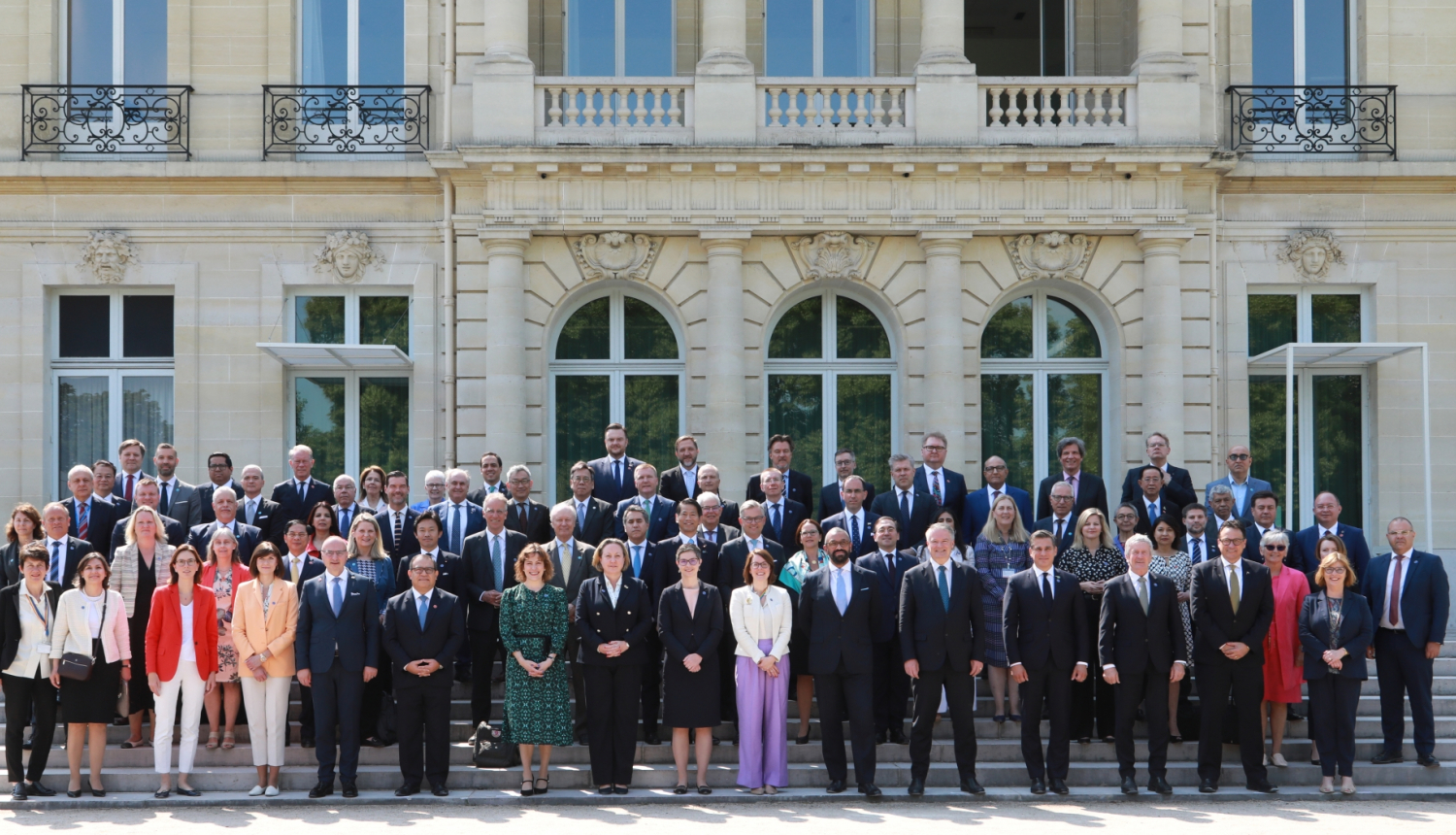On 7 June 2023 in Paris, the Minister of Foreign Affairs of the Republic of Latvia, Edgars Rinkēvičs, attended the annual OECD Ministerial Council Meeting, during which the role of the OECD and the wider international community in supporting Ukraine's reform agenda, in particular the launch of the OECD Ukraine Country Programme, was discussed. Participants were also presented with details of the support activities of the OECD and its Member countries, including the forthcoming Ukraine Recovery Conference in London on 21-22 June.
Addressing the participants, Edgars Rinkēvičs noted that since the first day of the Russian invasion, Latvia has stood by Ukraine's battle for freedom and territorial unity. Latvia is hosting Ukrainian refugees and continues to provide humanitarian and defence assistance. In financial terms, Latvia's support has exceeded one percent of the country's gross domestic product.
“We see Ukraine's future as a full member of our democratic and like-minded European family. To achieve this, Ukraine must win the war and stay on the path of reform. Latvia appreciates all the OECD's actions to help Ukraine. We congratulate Ukraine on becoming a prospective OECD Member country and welcome the launch of the Ukraine Country Programme. The priorities set out in this Country Programme will serve Ukraine's reconstruction and recovery, its integration into Europe and its development as a truly democratic nation,” emphasised Edgars Rinkēvičs.
The Minister of Foreign Affairs expressed the view that Ukraine should persistently focus on strengthening the rule of law and fighting corruption. “Latvia is contributing financially to the Ukraine Country Programme and supports the OECD-Ukraine Liaison office in Kyiv. We see these investments as a contribution to the peace, security and prosperity of Ukraine, Latvia and the world. Russia’s attack on Ukraine has created new challenges for the world economy and international trade. We look forward to strengthening OECD cooperation with Moldova and Georgia,” the Minister underlined.
The Minister of Foreign Affairs also participated in a working group of the OECD Ministerial Council Meeting on Resilient Critical Supply Chains. The Minister expressed Latvia's support for an open and rules-based international trade system. Mutually beneficial trade is vital to ensure the resilience of global supply chains and secure access to the many resources needed for the green transition and digital transformation.
“Recent supply chain disruptions caused by the Covid-19 pandemic and Russia's invasion of Ukraine, combined with soaring demand, have dramatically increased the cost of energy, technology and raw materials. A predictable and fair international trading system based on the World Trade Organisation is more important than ever, especially in the light of Russia’s aggression against Ukraine. This calls for the modernisation of global trade rules, including on industrial subsidies, e-commerce, the environment and others,” said Edgars Rinkēvičs.
On the sidelines of the OECD Ministerial Council Meeting, Edgars Rinkēvičs met the Foreign Secretary of the United Kingdom, James Cleverly, to discuss the upcoming conference in London to support Ukraine's reconstruction and regional security cooperation.
Background information
On 5 July 2022, the Prime Minister of Ukraine submitted a formal application to the OECD for Ukraine's accession to the organisation. The OECD Ukraine Country Programme is being established to provide a framework for a more structured partnership between the OECD and Ukraine, both for Ukraine's recovery and to achieve the objectives of European Union and OECD accession. It is envisaged that the programme will offer Ukraine greater access to international best practice and exchange of experience through more active participation in the work of OECD bodies, improve the quality of policy reforms in line with OECD standards, and promote further consolidation of longer-term reforms, including through the OECD instruments of choice.
Foto: OECD




